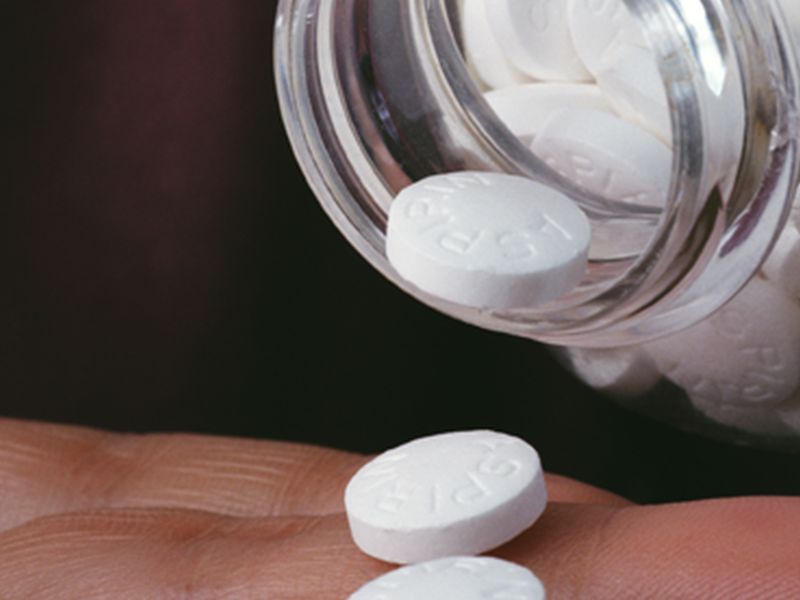Day by day Low-Dose Aspirin Might Lower Pancreatic Most cancers Threat

TUESDAY, Dec. 20, 2016 (HealthDay Information) -- There's proof that each day low-dose aspirin might lower the chance of pancreatic most cancers, based on a brand new research.
The Chinese language-based research could not show cause-and-effect. Nonetheless, "the stability of proof reveals that individuals who use aspirin to scale back threat for heart problems or colorectal most cancers can really feel optimistic that their use seemingly additionally lowers their threat for pancreatic most cancers," stated research lead creator Dr. Harvey Risch.
He is professor of epidemiology on the Yale Faculty of Public Well being and Yale Most cancers Middle in New Haven, Conn.
In keeping with the American Most cancers Society, about 53,000 People might be recognized with pancreatic most cancers this 12 months, and nearly 42,000 will die from the illness. Pancreatic most cancers is commonly a "silent killer" as a result of signs don't emerge till the tumor is superior.
The brand new research tracked 761 folks recognized with pancreatic most cancers in Shanghai from 2006 to 2011, and in contrast them to 794 individuals who did not have the most cancers.
All of the individuals had been requested about whether or not they took low-dose aspirin regularly. Virtually all who stated they took it did so each day.
Eighteen p.c of the non-cancer sufferers reported common use of low-dose aspirin in comparison with 11 p.c of the pancreatic most cancers sufferers.
After adjusting their statistics so they would not be thrown off by numerous elements, the researchers estimate that aspirin might cut back the already small threat of pancreatic most cancers by 46 p.c.
Nonetheless, Risch's staff harassed that the research does not show that aspirin instantly produces a decrease threat, and the individuals might not have exactly remembered their aspirin consumption.
An evaluation of different research discovered comparable outcomes. The researchers examined 18 different research that had investigated aspirin use and pancreatic most cancers threat over the previous twenty years and located that as aspirin use elevated, the chance of pancreatic most cancers considerably decreased.
"Pancreatic most cancers is comparatively uncommon -- simply 1.5 p.c of U.S. adults might be recognized with it sooner or later throughout life -- and common aspirin use could cause considerable issues for some," Risch stated in a information launch from the American Affiliation for Most cancers Analysis. "Subsequently, an individual ought to seek the advice of his or her physician about aspirin use."
One oncologist who reviewed the information stated People ought to be cautious in deciphering the outcomes.
"That is an attention-grabbing research that implies that common aspirin use might cut back the incidence of pancreas most cancers -- in folks dwelling in China," stated Dr. Tony Philip, an oncologist at Northwell Well being Most cancers Institute in Lake Success, N.Y.
"Something greater than that can't be extrapolated from this research," he stated. "We all know the genetics of individuals in a single a part of the world may be very totally different from different elements. As well as, we do not know what else these sufferers had been doing, for instance, taking natural medication, their household historical past, or entry to medical care."
Philip stated that he would not counsel each day low-dose aspirin to his sufferers based mostly on this knowledge alone. However the findings "could be the idea for additional work" researching this concern, he added.
The research was printed Dec. 20 in Most cancers Epidemiology, Biomarkers & Prevention.
-- Randy Dotinga

Copyright © 2016 HealthDay. All rights reserved.
SOURCES: Tony Philip, M.D., medical oncologist, Northwell Well being Most cancers Institute, Lake Success, N.Y.; American Affiliation for Most cancers Analysis, information launch, Dec. 20, 2016
No comments:
Post a Comment